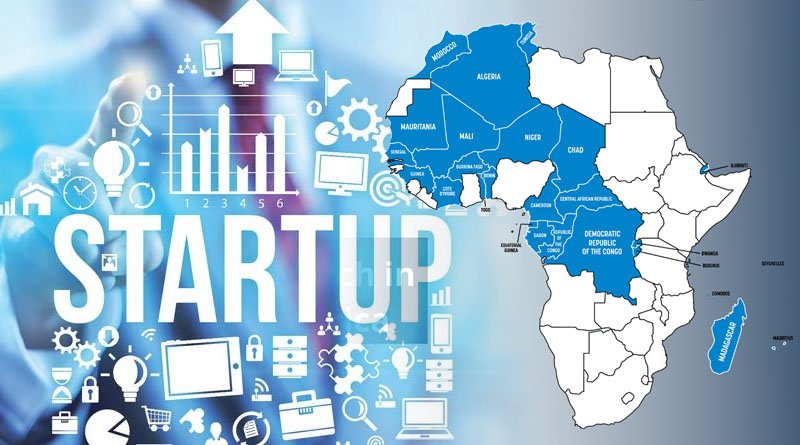Numerous factors contribute to the dominance of Anglophone Africa in startup funding, including market size, language barriers, and consumer preferences.

Though the “Big Four” English-speaking countries still control the majority of the startup market on the continent, startups in Francophone Africa has made enormous strides in this area in recent years.
While African startups continue to break fundraising records, the “Big Four” English-speaking nations of South Africa, Egypt, Kenya, and Nigeria receive the majority of investment inflows. Averaging 75% of the funding in 2022 (down from 82% in 2021), they are the fundraising leaders each year.
One English-speaking nation, Ghana, and three French-speaking nations, Algeria, Senegal, and Tunisia, make up the next four major recipients of startup funding, according to a report by “Africa: The Big Deal”.
While Algeria, Tunisia, and Senegal attracted $151 million, $119 million, and $112 million, respectively, in 2022, startups in Ghana raised an astounding total of $390 million. Numerous factors contribute to the dominance of Anglophone Africa in startup funding, including market size, language barriers, and consumer preferences. Market visibility is another important consideration.
The majority of startup founders in Africa are from the US and UK. They seem to understand those markets and cultures better because they are naturally drawn to work with those in the anglophone world, according to Francis Brou, a researcher in economics and development at Bouake University in Côte d’Ivoire.
“There are still very few French investors supporting startups in Africa. You wouldn’t invest your money in a location where you feel uneasy. There are differences in how things are done. Both the regulations and the mentality are different.”
As a result, language and culture have a significant impact on how startup funding is distributed, with Anglophone and Francophone ties on the continent still being strong in business. While the “Big Four” of Africa will probably continue to dominate fundraising in the near future, startups from the francophone world are working to close the gap.
“The US and UK account for the majority of startup investors in Africa. Because they appear to comprehend those markets and cultures better, they are compelled to work with those in the anglophone world. There are still very few French investors supporting startups in Africa. You wouldn’t invest your money in a location where you feel uneasy. There are differences in how things are done. The rules are different, and the mindset is different,” claims Brou.
Regarding startup funding, the impact of language and culture cannot be understated. Even in business, there are still strong ties between Anglophones and Francophones on the continent.
After securing a seed investment worth $1.2 million in April 2021, the Mali-based insurtech company OKO, which creates affordable mobile-based crop insurance products to give smallholder farmers financial security, raised $500,000 in June to expand to neighbouring Côte d’Ivoire. According to co-founder and CEO Simon Schwall, a large portion of those funds came from Francophone investors.
“Our investors come from French-speaking countries like NewFund, which has its headquarters in Paris, and from strategic investors who own companies in Francophone Africa like Touton. Additionally, some Parisian startups with their corporate headquarters in France run operations in Francophone Africa,” he claims.
Khaled Ben Jilani, a startup specialist at the pan-African private equity and venture capital firm AfricInvest, which was founded in Tunisia, claims that language barriers may not be the main reason why startups in Francophone Africa are not attracting significant funding. In contrast to startups from Anglophone nations, he contends that Francophone startups are tardy to the party.
“Since most startups in Francophone Africa are still in their early stages and the French market has only recently begun to draw investment, there has been a delay in larger rounds. Fintech, software, and edtech startups are some of those emerging, though, and they could help that region of the continent quickly emerge and become more appealing to both African and international investors,” he claims.
The future of startups in Francophone Africa is especially promising, according to US-based venture capital firm 500 Global.
“For the startups in French-speaking Africa, which are slowly catching up, there has been some good news. The key factor is ecosystem maturity. The size of the francophone markets will soon be sufficient to draw more capital from regional and international investors, “explains 500 Global’s Africa Lead, Mareme Dieng.
